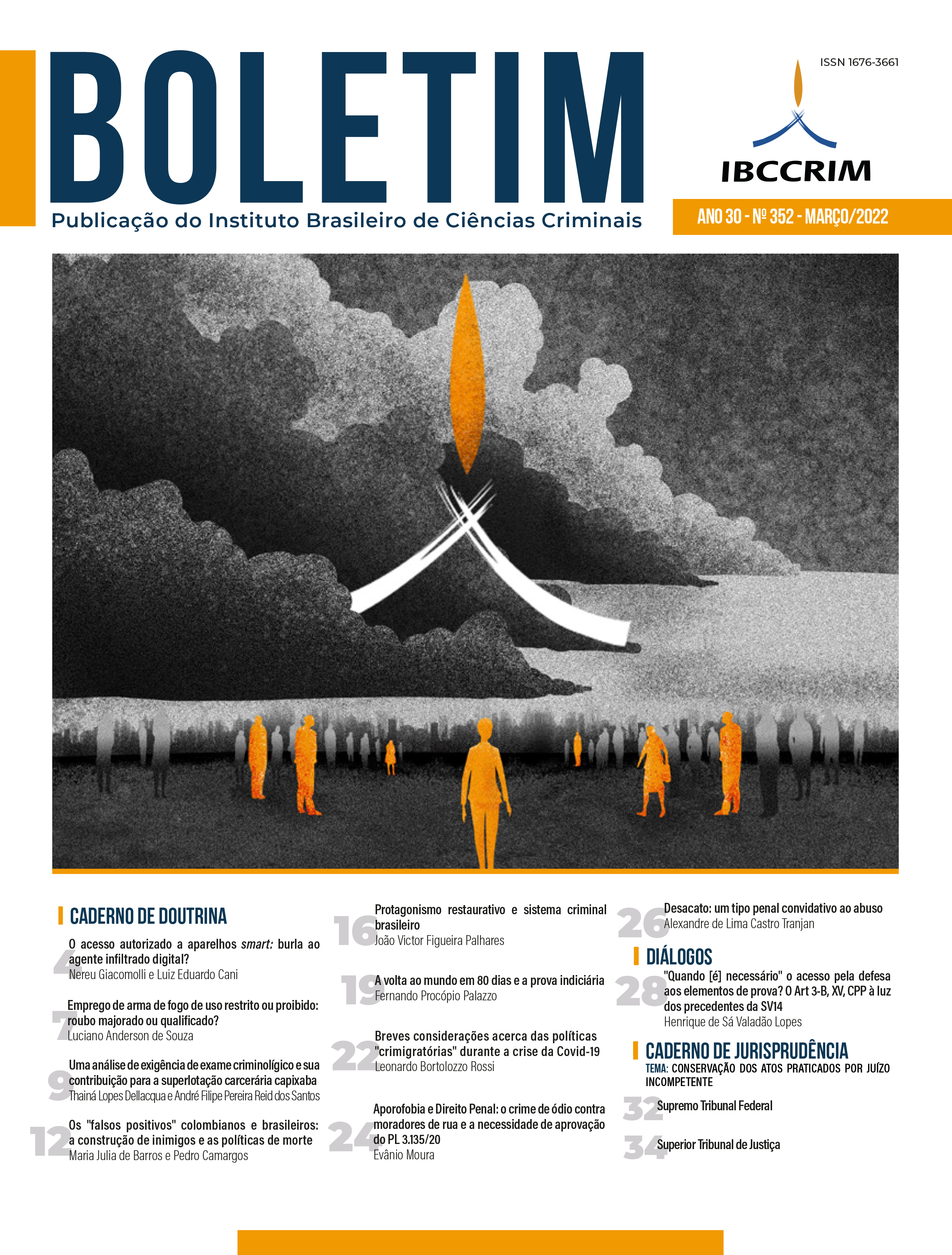A volta ao mundo em 80 dias e a prova indiciária
Views: 58Keywords:
Law, Literature, Evidences, Jules Verne, ProofAbstract
The scope of the present essay was to analyze the implications arising from the use of deficient evidence in criminal proceedings. It was made a parallel between the book of Jules Verne, “Around the world in 80 days” with situations that are evidenced in the criminal prosecution. Starting from an analysis of the facts that occurred in that literary work, it was demonstrated how the obstinate search of the police investigator, imbued with purely sensory and hasty judgments, caused damage to the protagonist of the story. It was pointed out, in this context, that the application of evidence requires caution and adequate compliance with other probation elements. It was defended, in this line, that the current criminal procedure, based on the democratic precepts of the 1988 Constitution, requires an appropriate exposition of the facts and a dialectical reading in respect of legal guarantees.
Downloads
Publication Facts
Reviewer profiles N/A
Author statements
- Academic society
- Instituto Brasileiro de Ciências Criminais
- Publisher
- IBCCRIM
References
BADARÓ, Gustavo Henrique Righi Ivahy. Editorial dossiê “prova penal: fundamentos epistemológicos e jurídicos”. Revista Brasileira De Direito Processual Penal. Belo Horizonte, v. 4, n.1., p. 43-80, 2018.
CARRARA, Francesco. Programa de Direito Criminal. Parte Geral. Vl. 2. São Paulo: Saraiva, 1956.
DOSTOIEVSKI, Fiodor. Crime e Castigo. Vl. 2. São Paulo: Editora Victor Civita, 1979.
JUNIOR, Aury Lopes. Direito Processual Penal. 17a ed. São Paulo: Saraiva, 2020.
STRECK, Lenio Luiz. O que é isto – decido conforme minha consciência? Porto Alegre: Livraria do Advogado, 2013.
STRECK, Lenio Luiz; TRINDADE, André Karam. Direito e Literatura. Da realidade da ficção à ficção da realidade. São Paulo. Atlas.VERNE, Jules Gabriel. A volta ao mundo em 80 dias. São Paulo: Moderna.
Downloads
Published
How to Cite
Issue
Section
License
Copyright of published articles belongs to the author, but with journal rights over the first publication and respecting the one-year exclusivity period. Authors may only use the same results in other publications by clearly indicating this journal as the medium of the original publication. If there is no such indication, it will be considered a situation of self-plagiarism.
Therefore, the reproduction, total or partial, of the articles published here is subject to the express mention of the origin of its publication in this journal, citing the volume and number of this publication. For legal purposes, the source of the original publication must be consigned, in addition to the DOI link for cross-reference (if any).


 Português (Brasil)
Português (Brasil)
 English
English
 Español (España)
Español (España)






